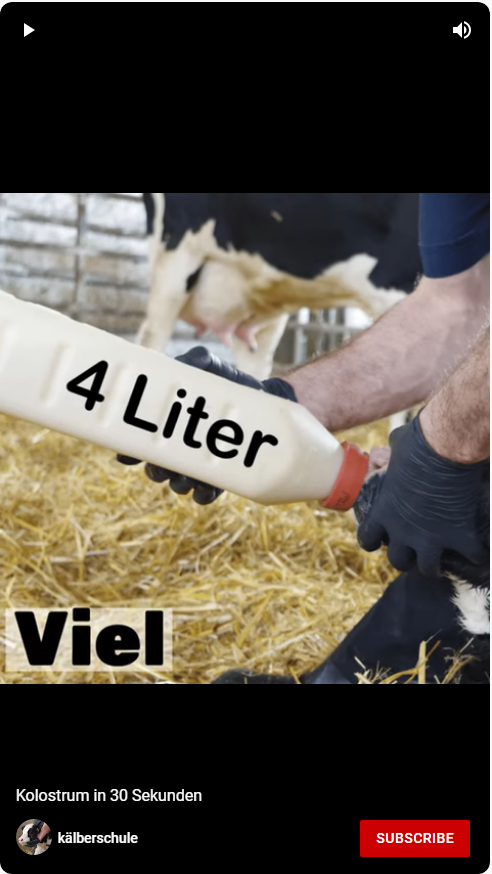The shortage of skilled labour in agriculture often leads to the employment of unskilled staff. Current research also shows that there is sometimes a lack of time and material for training and ongoing education. This is where the project "ViaMilch - visual interactive work instructions" intervenes with the cow school and the calf school.
Prof. Wolfgang Heuwieser's working group from the FU Berlin has been working since 2016 on the question of how work instructions (SOPs) in the dairy sector can be made more user-friendly and mobile. Three things are important: short & concise, picture-based and don't forget the "why". To publicise the initiative, the Calf School (www.kaelberschule.de) was launched (in German). In a pilot study with employees of calf-rearing farms, image-based work instructions for the important tasks in the calf area (including first aid, recognising sick calves, checking colostrum quality, dehorning, drenching) were provided and evaluated in online courses lasting about eight minutes.
After this pilot study the Landwirtschaftliche Rentenbank is funding a project called "ViaMilch - visuelle interaktive Arbeitsanleitungen" with funds from the federal special-purpose fund. “ViaMilch” is to consolidate the online "calf school" (for calf SOPs) and to supplement it with new topics. Furthermore, topics on low-stress and safe handling of dairy cows will be added to the online "cow school" (for cow SOPs).
The materials provided by the Veterinary Clinic for Reproduction (FU Berlin) are in line with current doctrine and can be used to train new staff. Similarly, the "calf school" and the "cow school" are intended to encourage knowledge review and reflection on work procedures, because even with an established staff, written work instructions can make the working environment more attractive and help to facilitate and improve the execution of work for the benefit of the animals.
The content is (for registered users) presented as interactive step-by-step instructions, memorable videos or PDFs to print out. This way, every type of learner will find his or her favourite format. The courses do not take place continuously. After registration, one receives an email promising to report the start of the next training session.
While the focus here is primarily on dairy cattle, many topics are interesting for beef cattle farming, too; e.g. the recognition of sick calves or low stress handling of cows.
Link to registration:
https://www.kaelberschule.de/anmeldung/
Brochure:
Impact:
- Socio-economic resilience: So far, participation is free of charge, so it can have almost exclusively positive effects. Because better executed work steps lead to a better result.
- Animal health and welfare: It is precisely this issue that is at stake in the topics dealt with - if diseases are detected more quickly, treatments are carried out better or handling is less stressful, this is positive for animal health and welfare.
- Production efficiency and meat quality: Well-trained employees who are confident in their actions work more efficiently. This improves production efficiency here.
Sources:
- Neukirchner, S. und Heuwieser, W. (2021): Visuelle Arbeitsanleitungen vereinheitlichen Arbeitsabläufe und verbessern die Einarbeitung in Tiermedizin und Landwirtschaft - Beispiel "Kälberschule". Der praktische Tierarzt 102, 623 - 627. https://www.vetline.de/visuelle-arbeitsanleitungen-vereinheitlichen-arbeitsablaeufe-und-verbessern-die-einarbeitung-in
- Neukirchner, S. (2021): NEU: Online-Schulung zum stressarmen Umgang mit Milchkühen. Pressemitteilung. https://www.ava1.de/img/cms/PM-Kaelberschule-Kuhschule-Neukirchner-20-Apr-2021-ViaMilch-final.pdf
